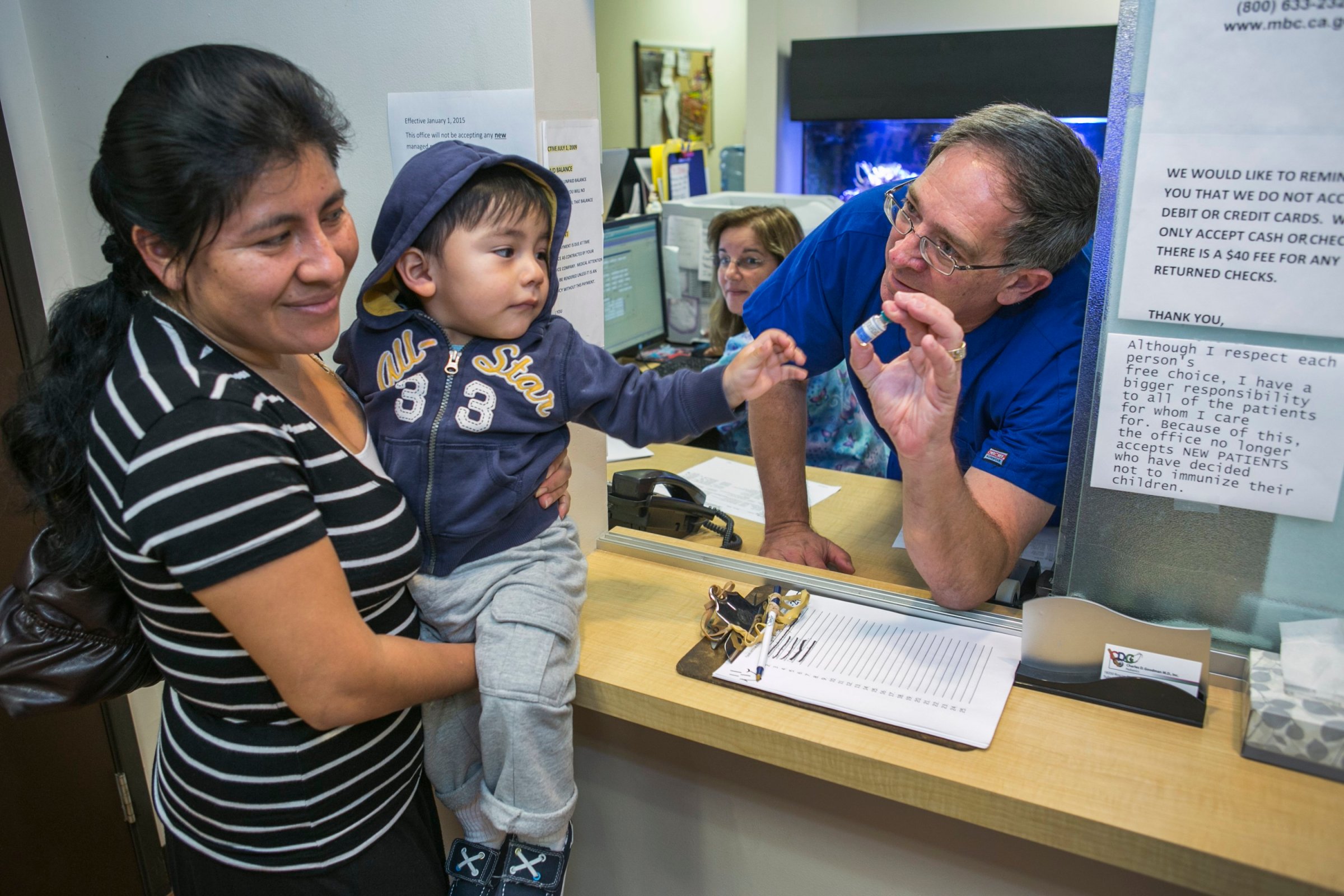
The number of measles cases in the U.S. has reached 102, according to new numbers released on Monday by the Centers for Disease Control and Prevention (CDC).
Between Jan. 1 to Jan. 30, 102 cases of the measles were reported to the CDC from 14 different states. The majority of the cases are from an ongoing outbreak linked to Disney California Adventure Park in Anaheim, Calif. The CDC says the majority of people who got measles were unvaccinated.
“It’s only January and we have already had a very large number of measles cases — as many cases as we have all year in typical years,” Dr. Anne Schuchat, the assistant surgeon general, U.S. Public Health Service said in a press conference last Thursday. “This worries me, and I want to do everything possible to prevent measles from getting a foothold in the United States and becoming endemic again.”
Medical officials have not yet determined how this year’s outbreak began, but the CDC says measles were likely brought over by travelers from overseas. The people infected in the current outbreak have exposed others at the amusement park as well as schools, day cares, emergency departments, airplanes and outpatient clinics, the CDC says. In 2014, the U.S. had the highest number of measles cases reported in over 20 years, at over 600 cases.
The U.S. declared measles eliminated in the country in 2000, meaning it was no longer a disease native to the U.S. Strong immunization rates will keep it that way, which makes parents who do not vaccinate their children a concern to health officials.
A recent poll showed 92% of physicians believe the current outbreak is directly attributable to parents not vaccinating their kids, and 72% believe unvaccinated kids should not be allowed in public schools.
The measles vaccine, called MMR (measles, mumps, and rubella), is nearly 100% effective at preventing measles, which is a highly contagious disease. In kids measles can cause serious complications like pneumonia, long-term brain damage and deafness.
The CDC recommends all kids get two doses of MMR vaccine; the first at age 12 through 15 months and the second at 4 through 6 years. Adults who are unsure whether they got the vaccine should get one, says the agency, since there is no harm in getting it a second time. On Friday, the White House urged parents to listen to health professionals on vaccinations.
Read next: Christie Says Parents Should Have a Choice on Measles Vaccine
More Must-Reads From TIME
- The 100 Most Influential People of 2024
- The Revolution of Yulia Navalnaya
- 6 Compliments That Land Every Time
- What's the Deal With the Bitcoin Halving?
- If You're Dating Right Now , You're Brave: Column
- The AI That Could Heal a Divided Internet
- Fallout Is a Brilliant Model for the Future of Video Game Adaptations
- Want Weekly Recs on What to Watch, Read, and More? Sign Up for Worth Your Time
Contact us at letters@time.com